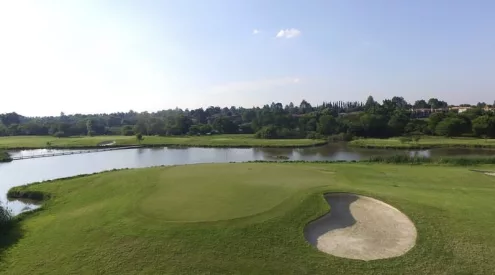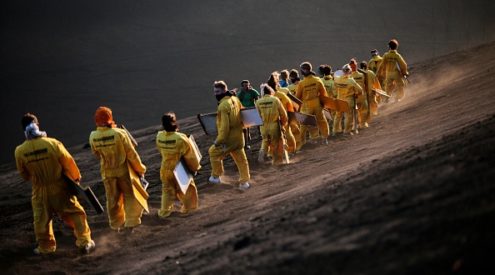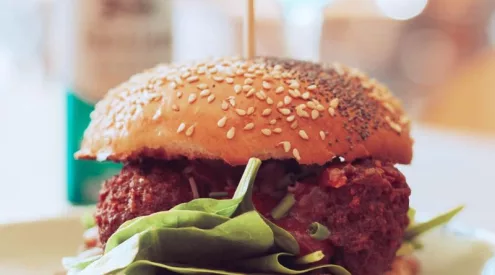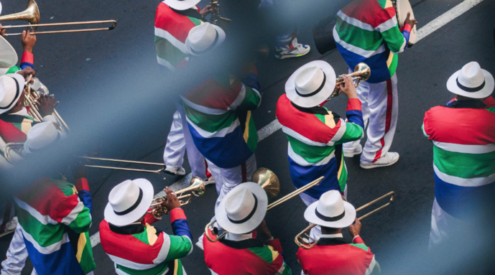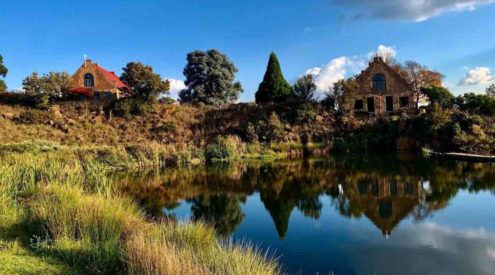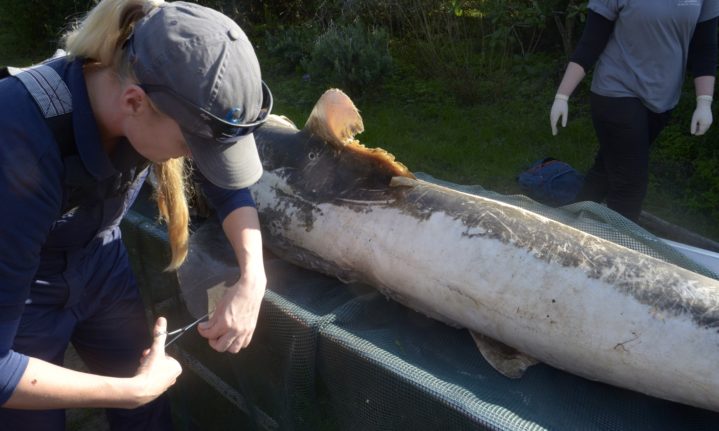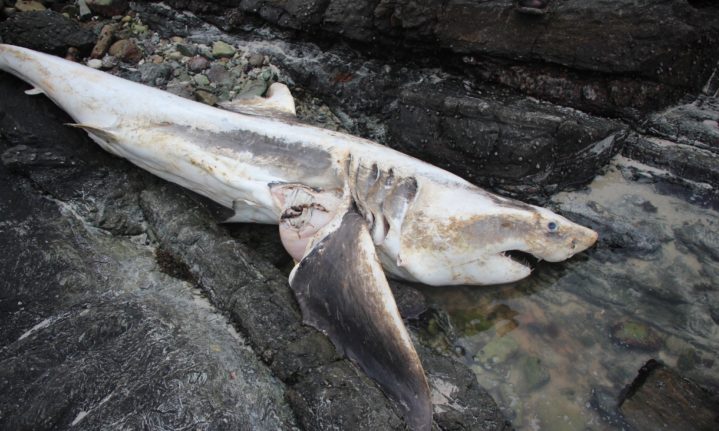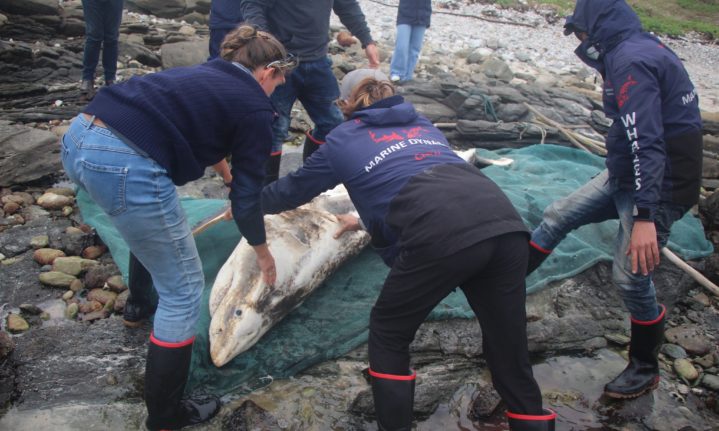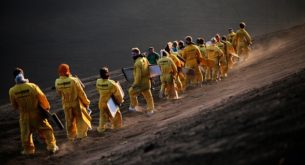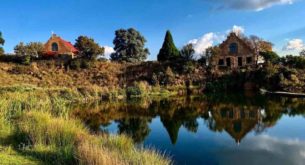A stranded great white shark was reported in Die Dam area near Gansbaai on Monday, 20 June. The sud-adult female was dead and retrieved by Marine Dynamics Academy (MDA).

She was rolled into a trawl net and transported back to the International Marine Volunteers lodge in Kleinbaai to be necropsied by senior white shark biologist Alison Towner and the MDA team the following day.
Detailed photogrammetry and measurements were taken by conservationists Alina Pryazhkina and Ettienne Roets, together with volunteers from the MDA.
The 2.9-metre-long shark was torn open at the pectoral girdle and had what appeared to be killer whale tooth impressions visible on the caudal fin, and it had a Domier dart head from an old acoustic tag imbedded in the musculature at the left side of its dorsal fin base.

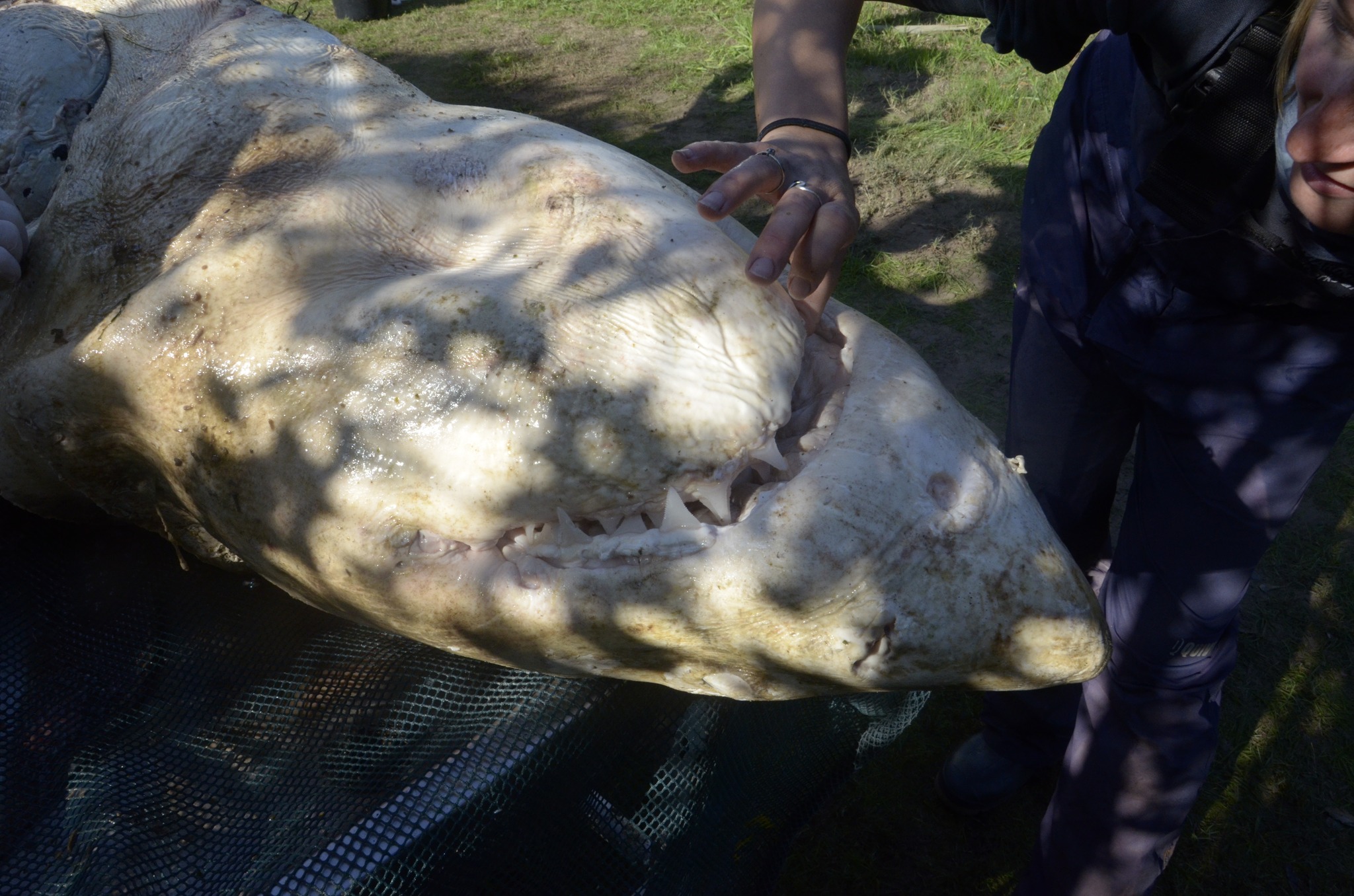
Towner suspects this to be an animal they tagged in Mossel Bay two years ago, but due to the degraded condition of the dorsal fin, and complete lack of tag or tether, it is not possible to verify. The flesh was removed and inspected containing the dart head and no signs of lesions, or muscle damage was evident, the wound had fully healed around the tag in a circular shape, walling it off and supporting the fact it was an older tag that had likely fallen off with time.
Swabs for genetic material were taken above and below the pectoral tear injury and the possible raker marks on the caudal fin, as well as two control sites on the body and were frozen.
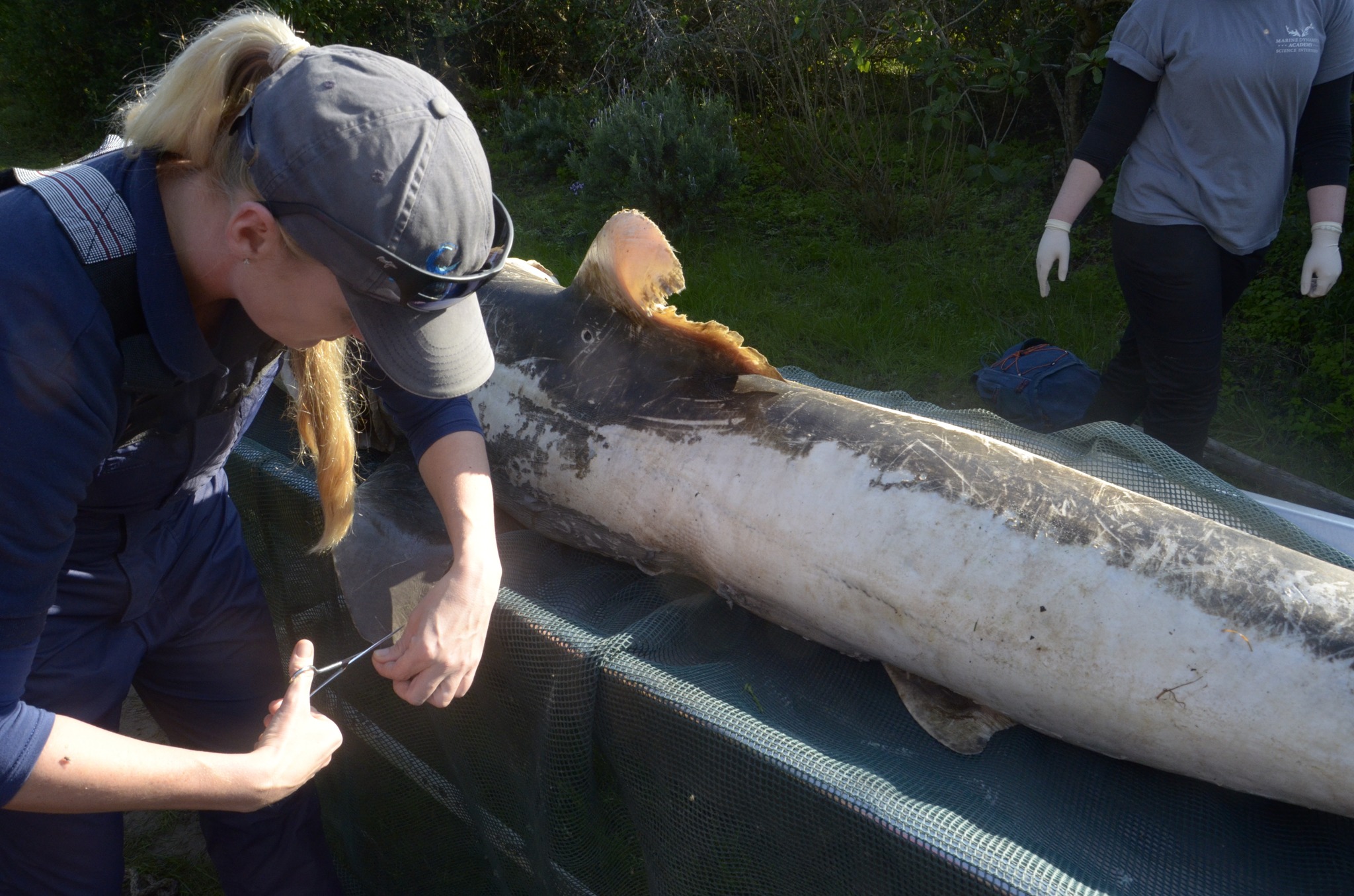
On cutting the ventral flesh open, the shark’s liver and the heart were confirmed to be missing. The stomach contents contained one subadult Cape fur seal. It had likely been freshly consumed due to very little decomposition and had been bitten in two, at the hind flippers. The shark’s internal organs all looked relatively healthy, apart from one small fleshy lesion at the cloaca.
The shark’s head was frozen will collected by government’s DFFE along with all other samples, and distributed to permitted white shark researchers.
The conclusion on this particular animal’s death was predation by killer whales, based on the time of year, the types of injuries and the fact that the known killer whale pair Port and Starboard – proven to predate on large sharks in South Africa – were in the region two days before. This is the eighth white shark confirmed to have died due to killer whale predation in South Africa. The real number is likely higher as not all carcasses will wash ashore.
Find out more:
Dyer Island Conservation Trust
Pictures: Dyer Island Conservation Trust
ALSO READ


